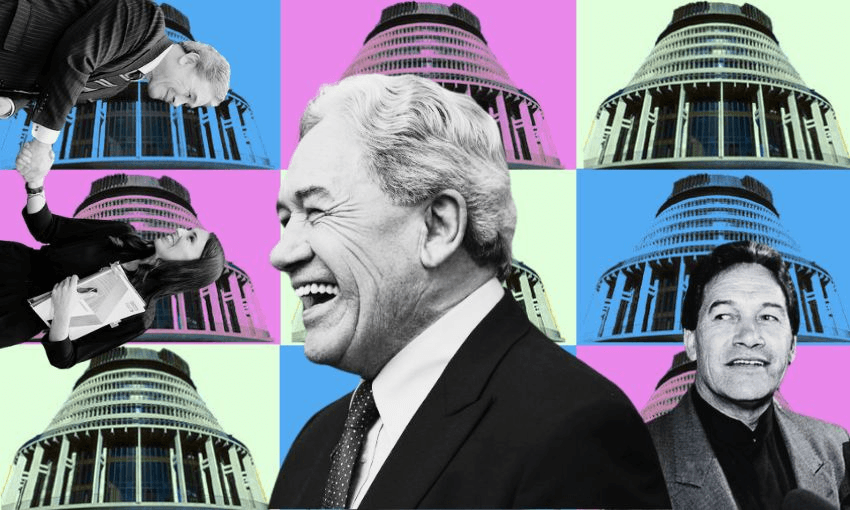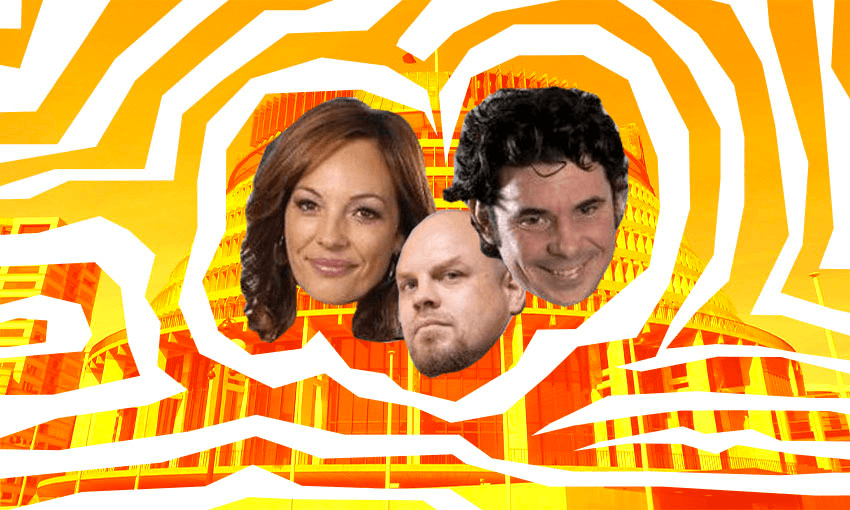On the one hand, superannuation is putting huge and increasing pressure on the government’s books. On the other hand, if you raise the age of entitlement I will emit a supersonic howl of despair.
Prime minister Christopher Luxon was unequivocal when asked on Newstalk ZB last week if National is still committed to raising the age of entitlement for superannuation. “We have a National Party position, which is that we want to move it to 67,” he said, before surprising listeners with the news that he once ran an airline. “When I was at Air NZ it was very common for people 67, early 70s, still able to work and keep working, and still doing a good job.”
His deputy Nicola Willis gave the same commitment in an interview on Monday with Herald NOW host Ryan Bridge, while adding a caveat. “If you were to make any change in that area I’ve always been of the view that you’d have to phase it in over a long period of time,” she said.
That period of time, specifically, is “from one millisecond after the last Boomer dies until the first millennial retires”. National’s policy is to gradually lift the age of entitlement for superannuation to 67 starting in 2044, hitting the sweet spot between the former generation shuffling off this mortal coil and the oldest of the latter starting to claim age-restricted universal basic income.
On the one hand, it’s easy to see why governments feel the urge to rein in superannuation spending. It’s forecast to cost $24.7bn in the coming year, dwarfing the amount we pay for more controversial welfare payments such as the Jobseeker benefit or rental supplements for politicians to live in their own houses. That number is projected to rise to $45.3bn, or 21.3% of total tax revenue, by 2037. Superannuation costs more than police, corrections, transport, conservation, the courts, the environment, Māori development and “women” combined.
On the other hand, get absolutely fucked come on man how much shit can people under the age of 40 have shovelled onto them from a great height god damn it christ on a bike argh argh argh no.
If you were born after 1980, you’re currently on your third or fourth once-in-a-lifetime global financial crisis since entering the workforce. Meanwhile, through your entire working life, New Zealand has been subject to a housing crisis which has driven property ownership rates down to their lowest point in 80 years.
As these factual, measurable, events have taken place, younger people have been subjected to a blitzkrieg of media takes from people who bought a house in 1953 for two tuppence and a medium-sized donkey on how they too could be rich if they’d just give up 42-inch flat screen TVs and trips to Bali. Worse, property-owning under-40s routinely advise their less fortunate peers they too can buy a house if they simply employ some hard work, gumption, and $750,000 from their parents.
In the circumstances, raising the super age for me and my sadsack peers could feel like a slap in the cheek to someone whose cheek has already been turned into pulp by all the slapping.
But those are just emotional reasons. The best argument for raising the super age – that life expectancies are increasing – is looking increasingly tenuous. Average life spans only crept up marginally in the 2020 Census, and in some countries are actually decreasing. Meanwhile, any increase to the age of eligibility for super will hit poorer and disenfranchised people the hardest.
Not every millennial is lucky enough to have a job working at Air NZ or sitting in front of the computer watching Toby Manhire research Juggernaut season two. Setting the super age at 67 would mean people in manual labour roles have to spend two more years adding minor injuries to their increasingly malfunctioning bodies before finally collapsing into the arms of a $500 per week government payout. Māori and Pacific people would feel the literal pain. They’re more likely to be in labouring jobs, and have life expectancies six to eight years lower than Pākehā.
There has to be a better way. The most obvious solution is means testing. But that comes with downsides. The means tested Best Start payment is currently being accessed by just half of estimated eligible people, and nearly a quarter of its cost is being swallowed up in admin.
Some premier economists propose liberalising immigration laws instead, allowing an influx of younger workers to support our rich retirees and deliver much-needed economic growth. To take that course, New Zealand would simply have to dispose of xenophobia and zone for rapid housing growth; moves which I’m sure would be taken in good spirits and not result in any roving bands of residents association members firebombing apartment buildings in Mt Eden.
Perhaps we could even impose higher taxes to make up the revenue we need to provide for our elderly people. Though a large percentage of wage earnings are currently diverted to the IRD, my research has uncovered another source of wealth called “capital” which appears to be lightly taxed. Perhaps some of the income generated from this mysterious asset class could go toward the greater good.
Millennials have spent their formative years selling kidneys to pay rent on a draughty villa and getting bullied by gen Z for admittedly being huge losers. They’ll spend the next 20 helping fund their parents’ generation’s Mediterranean cruises. Surely after that they can have a break? I guess not. Come back to The Spinoff in the year 2045 for my blistering takes on bingo etiquette and how the superannuation age should be lifted in 2070, starting with gen Z and gen alpha.






